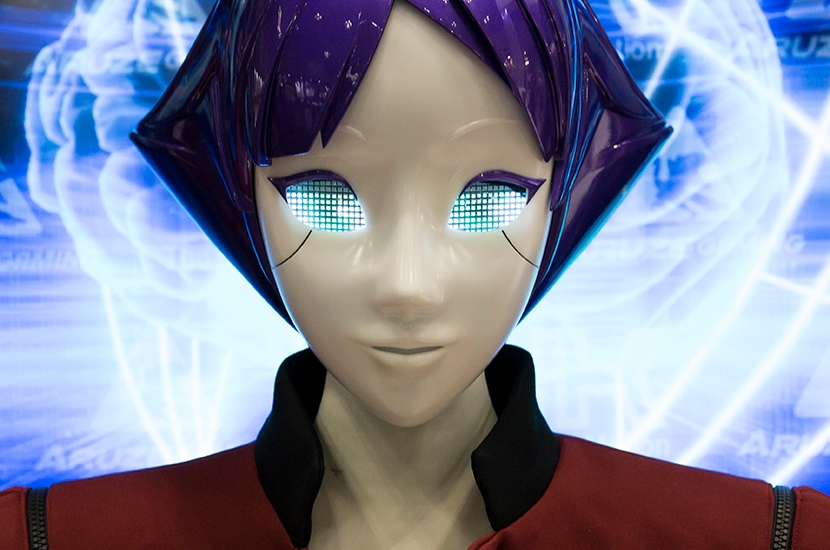Tokyo
The late A.A. Gill, in his notorious ‘Mad in Japan’ essay, concluded that the only way you could make sense of Tokyo was to think of it as a vast open-air lunatic asylum, with inmates instead of residents. Gill would have loved Arisa.
I don’t think I’ve ever encountered anything more stereotypically Japanese than Arisa. She’s a multilingual robot concierge at Nishi-Shinjuku station in central Tokyo, one of the thousands of new automatons installed in the city ahead of the Olympics next month. She has a rather creepy Doctor Who look to her — she could be Davros’s girlfriend — and she’s there to assist tourists. I considered testing Arisa by asking how to get to the famous Budokan concert hall, in the hope that she’d answer ‘Practise!’; but I’m not sure she’s programmed for humour.
The eccentricity of Japan is all-enveloping and inescapable, from bizarre language to dangerous food
The eccentricity of Japan is all-enveloping and inescapable: the frighteningly shrill screamed chorus of ‘Welcome’ whenever you enter a shop; the bizarre Japanese–English on packaging and billboards, hastily ‘translated’, presumably by non-native speakers, and apparently never checked. (‘The Day Nice Hotel’ and ‘Soup for Sluts’ are my personal favourites.) Then there are the council rose-bush pruners who wear crash helmets to do their work; the incomprehensible address system that makes a new location impossible to find (even with a robot assistant); the dangerous food, the highly prized but poisonous fugu pufferfish which kills a handful of people each year but is still sold as a delicacy. I could go on.
But Gill’s problem may have been that he didn’t stick around long enough (he hated the food). Just like those ‘magic eye’ pictures where you have to go into a Zen-like trance and wait for an image to emerge from a pointillist mélange of dots, Japanese customs and behaviour often do make sense — but only after you perform a sort of mental squint and wait for a kind of logic to manifest itself.
And you may need to wait a long time. As Dikko Henderson, James Bond’s man in Japan, says as he fixes 007 a drink:‘I’ve been in Tokyo 20 years and I’m only beginning to find my way around.’ I imagine he wasn’t merely referring to directions.
So eventually you come to understand that the crash helmets of the rose pruners are not for safety, but part of a formal uniform. And you realise that Japanese-English is decorative and designed to get your attention, rather than be meaningful (you’ll never forget ‘Soup for Sluts’). And you suspect that addresses may be purposefully confusing to deter casual visitors and reward the truly committed with a sense of accomplishment. And you sense that perhaps the irritatingly inflexible and time-consuming etiquette and the vagueness of so much written information keeps us on permanent edge, always slightly anxious and uncertain, thus warding off complacency, laziness, decadence. And eating the pufferfish adds a certain Russian roulette excitement to a meal.
But it’s another mistake to imagine that the locals understand their own peculiarities or have consciously engineered them. The Japanese are self-absorbed but not necessarily fully self-aware. Nihonjinron — the study of Japanese things by the Japanese — is a life’s work and an end in itself, undertaken by the majority in some form or another but never truly completed.
‘You are an eternal student. You never master anything — you just become progressively less bad,’ said an acquaintance about her 30-year flower-arranging career. Process is more important than product.
As Donald Richie, the great writer on Japanese aesthetics, said: ‘A Japanese person understands Japaneseness in the same way a fish understands water. They are surrounded by it, but have no idea what it is.’ Strange customs evolve over long stretches of time and survive because they serve some often obscure purpose and contribute in a small way to the greater good. There’s method in the quirkiness.







Comments